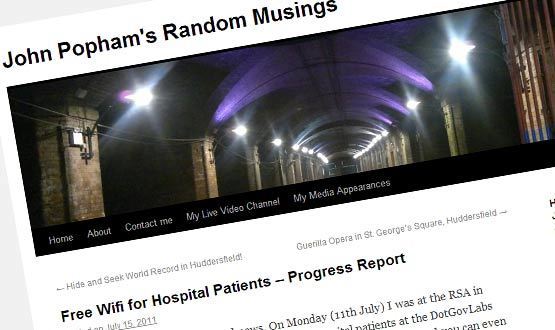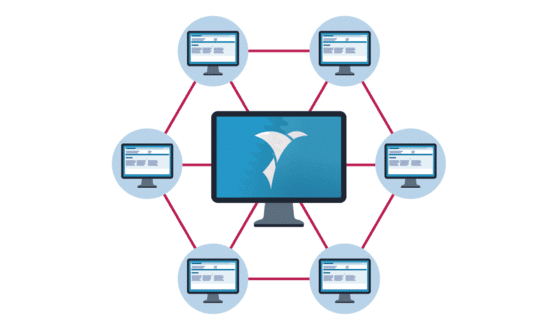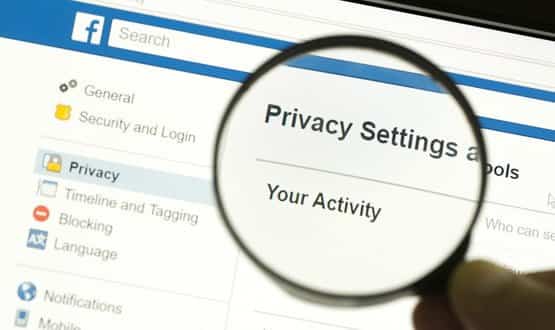The holly and free wi-fi
- 20 December 2012

Many families will be together to open their presents on Christmas Day. But others will have to celebrate with one of their loved ones in hospital.
For people who have to spend the festive season in a hospital bed, simply being able to connect with family and friends on social media, email or Skype could make a big difference.
This is one of the reasons that John Popham, an independent consultant on social media and new technologies, started a ‘free wi-fi for patients’ campaign last year. Most hospitals don’t offer wireless internet access to patients, and Popham wants to change that.
In fact, he tells eHealth Insider, in the 21st century there shouldn’t be an issue with technology. “Hospitals need to wake up,” he says. “It’s not that difficult! Most hospitals already got the technology for it.”
All I want for Christmas is wi-fi
Popham began his campaign after personally experiencing “great frustration” with the lack of internet access in hospitals.
His stepdaughter, who lives with sickle cell anaemia, has spent a significant amount of time in hospital over the years and has found this very isolating.
“Her losing contact with friends and family while in hospital, as well as her hospital stay disrupting her education, was the inspiration behind the campaign. If she had had access to internet, that could have been avoided,” he says.
Popham adds that holidays can be a particularly lonely experience. Family and friends are often busy preparing for the celebrations and may not be able to visit as much as usual.
“Around Christmas time it’s even more important. It’s the time of year when people need to be in touch with their friends and family.”
Despite this, there seems to be a general reluctance to offer free wi-fi to patients mostly, it seems, because hospital IT departments are worried about security and cost.
Rolled out in Yorkshire
However, it is not impossible to get around these issues, as Mid Yorkshire Hospitals NHS Foundation Trust shows.
The trust offers free internet services to patients across its three sites; Dewsbury and District Hospital, Pinderfields Hospital, and Pontefract Hospital.
The service was introduced two years ago, when the trust moved into new hospital buildings. Associate director of IT James Rawlinson says that charging patients wasn’t something the trust was interested in doing.
“We went to a few private providers, but they wanted us to pay them to charge our patients. We thought ‘what’s that about, we’re a public service?’ It was just complicating things,” he says.
Instead, the trust reconfigured the infrastructure it had put in place to open up access to patients. “For those who use it, it makes a real difference,” Rawlinson says.
“We had a gentleman who lived in Canada and could keep in contact with his family while he was in hospital. He was really grateful.
“But for most patients, especially the younger ones, it’s important to stay in touch with friends. New private finance initiative buildings aren’t always that good at getting mobile phone signal, but patients can use the internet if they can’t get signal.”
Popham is compiling a list of organisations that offer free wi-fi to patients as part of his campaign. Other trusts already on board include Bradford Teaching Hospitals and Liverpool Heart and Chest Hospital.
Addenbrookes Hospital in Cambridge and Surrey and Sussex Healthcare NHS Trust have free wi-fi on some of their wards, and East Surrey is looking to expand the service.
In addition, some trusts that have wi-fi for staff, such as Leeds Teaching Hospitals and Ashford and St Peter’s Hospitals, are looking to expand their services for patient use in the coming year.
A price to pay
Other trusts offer pay-for wi-fi to patients, many through WiFi SPARK, an independent internet provider. One of these is King’s College Hospital NHS Foundation Trust, which introduced a pay-for service in 2008.
Nick Penlington, the trust’s ICT services manager, says he agrees that connecting through the internet is important for patients.
“We provide them with the ability to use their own devices,” he says. “It allows them to see and talk with relatives, which is particularly important during Christmas. It allows them to stay in touch with Skype, Facebook and other social media.”
However, he argues that for his trust providing a free service is just not financially viable: “Somebody would have to pay for it and the hospital don’t have the money. It’s a question of resources. We would love to provide it free, but in reality it’s not feasible.”
Popham believes that people shouldn’t have to, and don’t want to, pay to use the internet in hospitals. “A lot of people can’t afford it and it’s a barrier to overcome.
“We’ve seen that with pay for bedside TV systems; they’re not very popular. If money is an issue there are other ways to work around that.”
New Year, new beginnings?
Popham’s campaign started, naturally enough, on social media. “I had conversations with people on Facebook and Twitter and saw that lots of people were complaining.” His Facebook group now has nearly 300 members.
In 2011, Popham won second prize in the DotGovLabs challenge, an incentive for innovators to find solutions to social challenges, which gave him £2,000 to help progress the idea.
Popham spoke at EHI Live 2012 in Birmingham in November. But if he had the resources he would go to every single hospital and try to convince them of the merits of his argument.
“There’s still the legacy about the use of mobile phones. Some people think if you got laptops and phones on the wards they would just get in the way,” he says. “You need to demonstrate that it’s been introduced before and it’s not dangerous.”
While IT directors may still be sceptical, doctors and managers may be coming round.
At the recent Digital Doctors conference in London, Dr Martin Murphy, clinical director at NHS Wales Information Service, said access to the internet was important for recovery.
“It’s well known that contact with relatives, carers and friends speeds the recovery process,” he said; adding that clinicians would also benefit from free wi-fi in hospitals.
“Junior doctors also need to have access. Hospitals want to use all these great solutions, but until we start getting wi-fi available we can’t bring them all together,” he argued.
None of the NHS hospitals in Wales currently offers free wi-fi, but Dr Murphy said this needed to change: “We need to start pressuring hospitals to have wi-fi for patients and staff.”
You can follow the progress of John Popham’s campaign on his wordpress blog.




